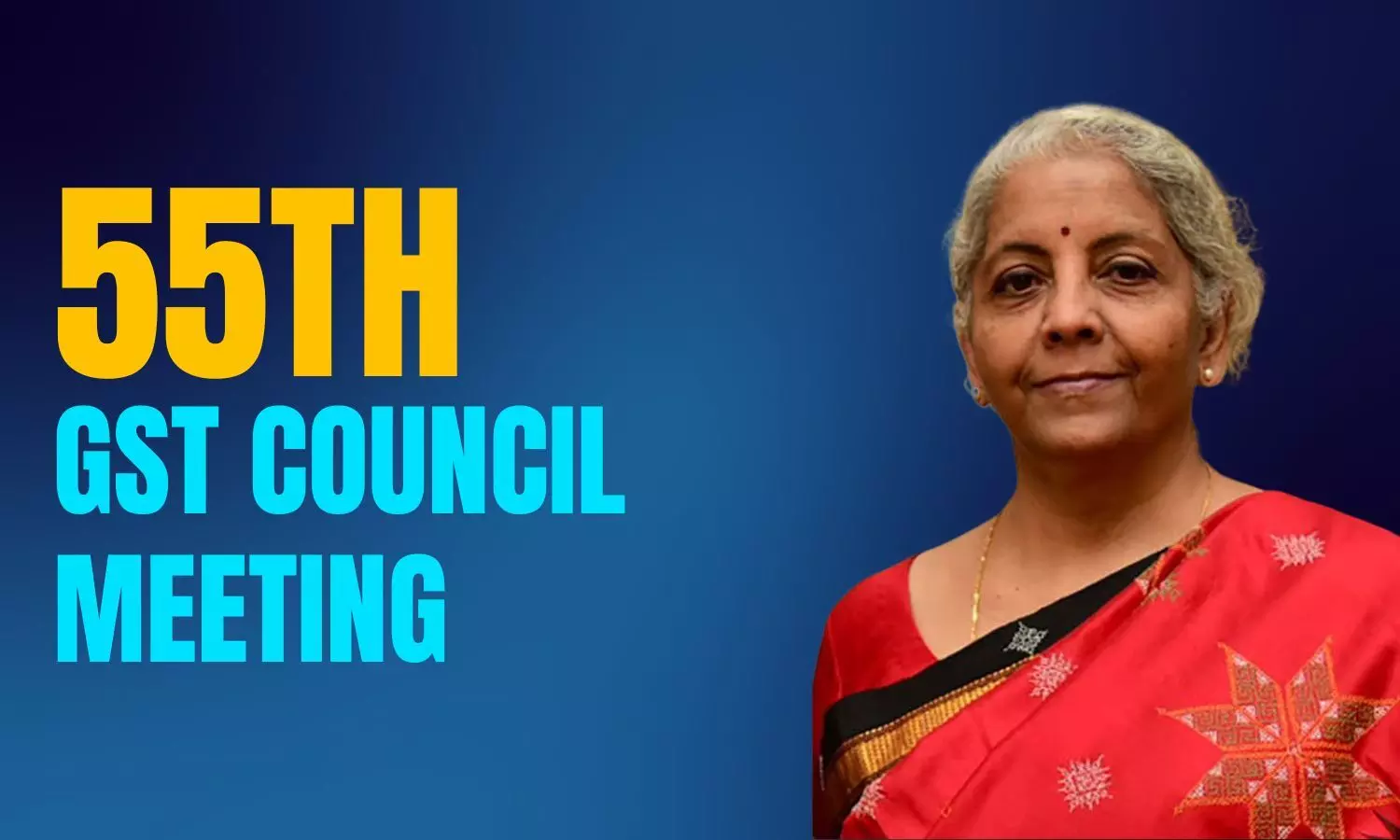Will History Repeat Itself at the Much-Anticipated 55th GST Council Meeting?
The current law allows for a maximum of 20% Central Goods & Services Tax (CGST) and an equivalent rate under the State Goods & Services Tax (SGST), with a total maximum rate of 40%. This provides the GST Council with the flexibility to increase rates without needing to go through Parliament, according to Najib Shah, former Chairman of the Central Board of Indirect Taxes & Customs.
GST Council Meeting

After widespread media speculation over a potential 35% Goods and Services Tax (GST) rate for certain products, the Group of Ministers (GoM) has clarified that these reports were premature and speculative. The GoM has not yet finalized its recommendations, and Finance Minister Nirmala Sitharaman has urged against further speculation.
Recent reports suggested that the GoM had proposed raising the GST rate on “sin” goods like aerated beverages, cigarettes, and tobacco from 28% to 35%, along with a new cess. Additionally, recommendations were made for varying GST rates on apparel and footwear based on price, with slabs of 5%, 18%, and 28% under consideration. This led to considerable speculation, especially since the GoM’s role is to review and rationalize the GST rate structure, which currently has four primary slabs: 5%, 12%, 18%, and 28%, in addition to a zero rate and special rates for precious metals.
While the proposed rate changes are still under review, the GST system’s complexity and the multiplicity of rates have been subjects of criticism. Some have even argued for a single, uniform GST rate, although the GoM’s recommendations point to a more nuanced approach. There are concerns that raising taxes on high-taxed items like cigarettes might encourage tax evasion and smuggling, as noted in a recent report by the Directorate of Revenue Intelligence (DRI).
The government is also exploring the impact of price-based GST slabs for items like apparel, which could complicate administration and enforcement efforts, potentially increasing evasion. As the GoM is tasked with submitting its final proposal by December 31, 2024, the outcome of these discussions could significantly affect the future of GST in India.
In the midst of these changes, industry observers are calling for action on expanding the GST base to include petroleum products like Aviation Turbine Fuel (ATF) and natural gas, which remain outside the GST framework. Addressing tax evasion through improved enforcement measures and data analytics is also a critical focus.
The GST Council, meeting today in Jaisalmer, will deliberate on these issues and could announce significant decisions regarding tax rates, exemptions, and clarifications. The outcome will likely have far-reaching implications for both businesses and the administration.

